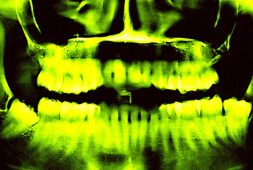
A recent study has illuminated the connection between post-traumatic stress disorder (PTSD) and adverse mental and physical health outcomes, particularly in midlife women.
According to the American Psychiatric Association, PTSD is explained as, ‘People with PTSD have intense, disturbing thoughts and feelings related to their experience that last long after the traumatic event has ended. They may relive the event through flashbacks or nightmares; they may feel sadness, fear or anger; and they may feel detached or estranged from other people. People with PTSD may avoid situations or people that remind them of the traumatic event, and they may have strong negative reactions to something as ordinary as a loud noise or an accidental touch.’
The research, to be presented at the 2023 Annual Meeting of The Menopause Society in Philadelphia from September 27-30, reveal that heightened PTSD symptoms are linked to poorer sexual functioning.
Contrary to common perception, PTSD is prevalent among women, affecting around 10% who report symptoms. Combat exposure, childhood physical abuse, and sexual violence are the primary events leading to PTSD development in women. Despite its high prevalence, there has been limited research exploring the relationship between PTSD symptoms and sexual functioning, especially among midlife women.
Involving over 100 postmenopausal women aged 45-66, a new study aimed to investigate the association between PTDS symptoms and sexual functioning, considering factors such as age, race/ethnicity, education, vaginal estrogen use, alcohol consumption, and depressive symptoms. Participants qualified if they experienced PTSD symptoms and engaged in sexual activity within the month preceding the evaluation.
The findings revealed that women reporting moderate to severe PTSD symptoms also reported lower sexual functioning on average. Notably, greater avoidance/numbing symptoms were specifically linked to poorer sexual functioning. The conclusion drawn from the study underscores the significance of recognizing and addressing PTSD symptoms among midlife women to enhance their sexual health and functioning as they age.
The results were presented at the 2023 Annual Meeting of The Menopause Society as part of the presentation entitled “Post-Traumatic Stress Disorder Symptoms and Sexual Functioning Among Midlife Women.”
Lead author, Dr. Karen Jakubowski, from the Department of Psychology, University of Pittsburgh shared, “Many midlife women experience profound changes in their mood, physical health, and social relationships, in part related to the menopause transition. Currently, there is little research on the long-term health effects of PTSD symptoms, specifically among midlife women. Our results highlight the need to better understand women’s trauma histories and PTSD symptoms in order to provide optimal clinical care for women during midlife.”
Dr. Stephanie Faubion, Medical Director for The Menopause Society, said, “As women age, there are many reasons why sexual functioning may become an issue for them. This study highlights the need for healthcare professionals to ask about any history of trauma and open-up the dialogue with their patients on this sensitive issue.”



